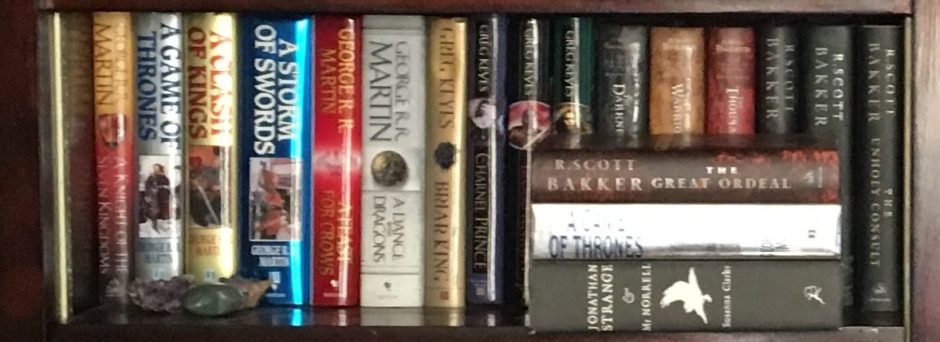
I finished this one today – about a day and a half after I started. It’s a very easy read – a narrative history that focuses exclusively on Who, What, When and Where. It actually uses the history of the Templars as a framework for delivering an overview of the Latin (Crusader) Kingdoms in the Middle East and the Crusades. For me, that was a good thing, since I didn’t know much about any of these topics starting out. It’s one of those periods in history that I just haven’t spent much time studying or reading about.
The book covers a period of approximately 200 years – from 1102 to 1314 – and focuses on two primary narratives: 1) the establishment of the Templar economic, political and legal foundation across Europe that allowed them to become such a wealthy, influential and autonomous organization and 2) the Templar military history in the two Crusader military theaters of the time – the Holy Land (defense of the Latin Kingdoms in the Holy Land and the Crusades meant either to expand or to defend them) and the Iberian Peninsula (the Reconquista). If you know even a little of the history of the Crusader Kingdoms or if you take the time to read the book’s subtitle, you’ll be forewarned to the fact that this is not going to be a triumphant story.
Over the course of 200+ years, Dan Jones walks you through a downward spiral that inevitably results in the expulsion of the West from the Holy Land and the dismemberment of the Templars. On that journey, you experience a fair bit of nobility and courage but you also have to wade through far too much bad judgement, bad luck, treachery and ugly human fallibility – a majority (but not all) of it imposed upon what Jones characterizes as a small and pious yet extremely wealthy militant order by the foolishness of their secular allies and church overlords.
That all makes the book a depressing read in some ways. Particularly at a time when noble ideals seem to be either disregarded or actively degraded, it’s hard to read about the “Spectacular Fall” of what was – in most ways, a very noble organization. Jones’ Templars are a group of men that do – by and large – retain their commitment over time to the vision set down in their initial Rule – even as they amass significant wealth, political influence and military capability. Given what they were becoming towards the end of the organization’s lifespan, a reader might even feel the smallest sense of relief about the rapid, total and unscrupulous way in which they were destroyed by the political (primarily Philip IV of France) and religious establishment of the day. They were crushed before the ideals which they espoused were compromised or snuffed out by the wealth they’d accumulated and political influence they’d established. At least that was the case for me but I’ve always been a bit too idealistic and optimistic in what I hope to find in world around me.
One other set of considerations that kept popping up in the back of my mind was a juxtaposition between the conditions in the Holy Land during the period described in the book and the conditions in the Mideast today. The Latin Kingdoms were an artificial and inevitably temporary construct surrounded by an overwhelmingly hostile religion and a demographically advantaged culture. Their survival was ultimately dependent upon the persistence of the European / Christian Crusader movement and the support provided by the kingdoms of France, Spain, England and the Holy Roman Empire. As that movement waned, as Europe turned in on itself and as the Church began to focus on the Inquisition, the decline and defeat of the Crusader Kingdoms in the Holy Land was inevitable.
I can’t help but see potential parallels in today’s world – both with respect to the American / European military presence in the Mideast and the continued survival of Israel. The first of these was originally based on the importance of the Mideast as a source of oil and eventually on the need to confront state sponsors of terrorism. I suspect that both of these drivers will wane over time, leading to disengagement and confirmation of the many, current damning criticisms of the decisions that brought us there in the first place. With respect to Israel, while it’s easy to casually assume it’s continued existence, Western support is what ultimately guarantees it’s viability. As that support is increasingly questioned in the West, I have to wonder about it’s longer term prospects for survival. It’s hard for us to imagine a world where the state of Israel no longer exists but the same could be said for most people in 1200 when it came to the Crusader Kingdoms in the Holy Land.
Overall, a very good read and I’d recommend it to anyone who enjoys history or isn’t already familiar with the period. As for me, that’s a powerful enough dose of reality for the Holidays. I’m going to move on to something a bit more escapist – either the next Malazan novel, the next Sandman Slim novel or the next book in the Prador universe. I’ll let you know as soon as I decide.
Cheers
